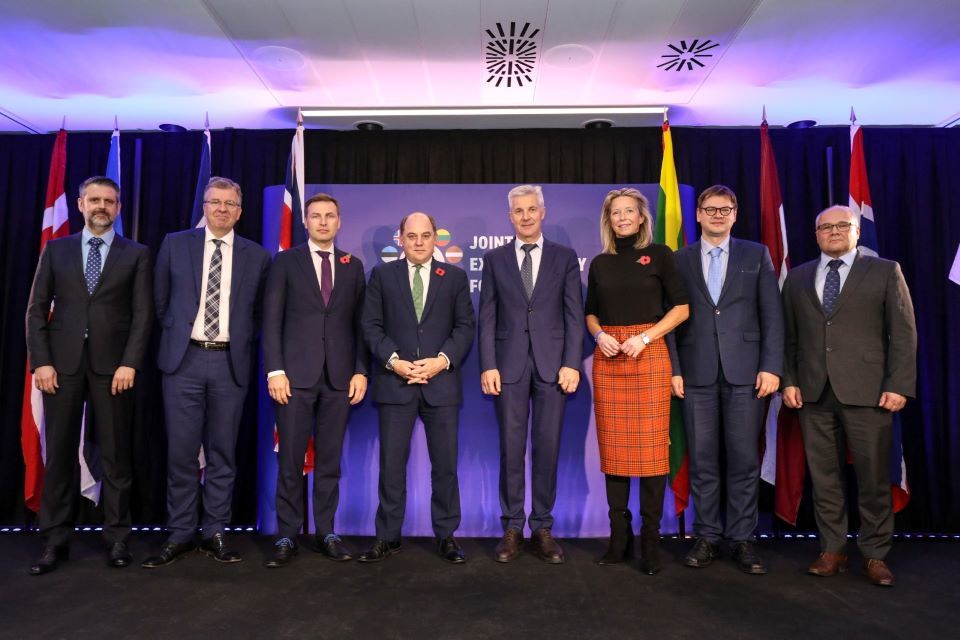“Being sucked back in?” – Shock UK sign-up as Government joins EU defence programme
Montage © CIBUK.Org
This report has been co-published with our affiliated organisation, Brexit Facts4EU.Org. We are most grateful for their original research into the raw data which backs what follows.
![]() “We will remember them” – 11 November 2022
“We will remember them” – 11 November 2022
REVEALED : As we commemorate Armistice Day, UK binds itself to EU’s Common Defence Policy
CIBUK.Org and Facts4EU.Org show just what the UK is signing up to – no announcement in Parliament

Yesterday in Brussels, the EU Commission was jubilant.
“I am happy to announce that the United Kingdom will join us on a Permanent Structured Cooperation (PESCO) project on military mobility.”
– Josep Borrell, de facto EU Defence Secretary, EU Vice President and Head of the European Defence Agency, Brussels, Thurs 10 Nov 2022
“The first step towards being sucked back in to the EU?”
In what follows we will explain what the UK Government has just committed the newly-independent Brexit Britain to, only 22 months after we left the European Union.
Yesterday’s jubilant announcement in Brussels was not joined by any announcement from the UK Government – its press offices were silent on this matter. Below we and the organisation with which we are affiliated, Facts4EU.Org put that right, firstly with a summary, followed by a more detailed explanation of what the Government has done.
UK signs up to an expensive EU programme binding the UK to the EU’s ‘values’… and more
Summary
Selling the UK’s independent defence policy?
- The UK Government has signed up to a programme in one the EU’s most important defence projects – “PESCO”
- This is the “Permanent Structured Cooperation” on Defence
- It once again requires allegiance to the EU’s values and policies
[Source: EU Commission, Thurs 10 Nov 2022.]
Why is the Government silent on this?
The announcement by the EU Commission yesterday will no doubt be played down by the UK Government when it eventually tells Parliament what it has done. On the face of it, co-operating with the EU on defence matters is highly desirable and this is how it will be presented.
 However, the UK already co-operates with EU countries on defence matters via NATO and bilaterally, as yesterday’s conference in Edinburgh hosted by Defence Secretary Ben Wallace demonstrates.
However, the UK already co-operates with EU countries on defence matters via NATO and bilaterally, as yesterday’s conference in Edinburgh hosted by Defence Secretary Ben Wallace demonstrates.
© MoD 2022 – click to enlarge
Defence Ministers and senior representatives from the ten participating nations of the Joint Expeditionary Force (JEF) met in Edinburgh. The JEF is led by the UK and comprises Denmark, Estonia, Finland, Iceland, Latvia, Lithuania, Netherlands, Norway, and Sweden. The nations share the same purpose, values and a common focus on security and stability in the JEF core regions of the High North, North Atlantic and Baltic Sea region.
The Joint Expeditionary Force is wholly independent of the EU, even though seven out of the 10 are EU member countries.
Exactly what has the UK Government signed us all up to?
The announcement of an agreement in Brussels yesterday is an overarching agreement. There will now need to be a detailed agreement signed, which will have to abide by the terms and framework agreement set out in previous EU Council Decisions and which the UK Government is fully aware of.
“The Permanent Structured Cooperation, or PESCO, is one of the building blocks of the EU’s Defence policy.”
– EU Commission website
PESCO was set up in 2017 “to enable EU member states to work more closely together in the area of security and defence.” This permanent framework for defence cooperation allows the EU participating countries jointly to develop defence capabilities and invest in shared projects.
“To date 25 EU Member States have undertaken the more binding commitments that form the basis of PESCO.”
– EU Council, “Conditions for third-state participation in PESCO projects”, 27 Oct 2020
The UK has signed up to one of PESCO’s most important projects – ‘Military Mobility’
In the event of any crisis it is essential that the military can move quickly. This means ensuring bridges, roads, and trains used for everyday travel can support the heavy-duty vehicles of the army. It also means reducing any border crossing bureaucracy to a minimum. This goes for military personnel, but also equipment.
The EU has to invest in its infrastructure. A key question will therefore be: “Has the UK Government agreed to fund any of this?”
It is most definitely in the EU’s interests to have – once again – the UK’s money and the UK’s superior armed forces in the event of a military crisis. However, given the much larger amount the UK has invested in its armed forces over so many years compared to some of the paltry amounts by many EU countries, this should be payment enough.
The UK will once again be subservient to the EU
Below we quote from the EU Council’s legislative decision on 27 October 2020, regarding ‘third countries’, i.e. non-EU countries like the UK. Here are their “conditions” for third country participation, summarised:
“It shares the values on which the Union is founded, as laid down in Article 2 TEU… as well as the objectives of the Common Foreign and Security Policy”
“It must not contravene the security and defence interests of the Union and its Member States”
“It provides a substantial added value to the project and contributes to achieving its objectives… by providing technical expertise or additional capabilities including operational or financial support
“Its participation contributes to strengthening the Common Security and Defence Policy (CSDP) … including in support of CSDP missions and operations”
“Its participation must not lead to dependencies… as regards armament procurement, research and capability development, or on the use and export of arms or capabilities and technology”
“Its participation is consistent with the more binding PESCO commitments… its participation must also contribute to fulfilling priorities derived from the Capability Development Plan and the Coordinated Annual Review on Defence (CARD), have a positive impact on the European Defence Technological Industrial Base (EDTIB), and make the European defence industry more competitive…”
“It has a Security of Information Agreement with the Union which is in force… it has an Administrative Arrangement which has taken effect with the European Defence Agency”
EU Council Legislative Decision, 20 Oct 2020
Please support our work
For the original version of this article, click here: https://facts4eu.org/news/2022_nov_defence_surrender